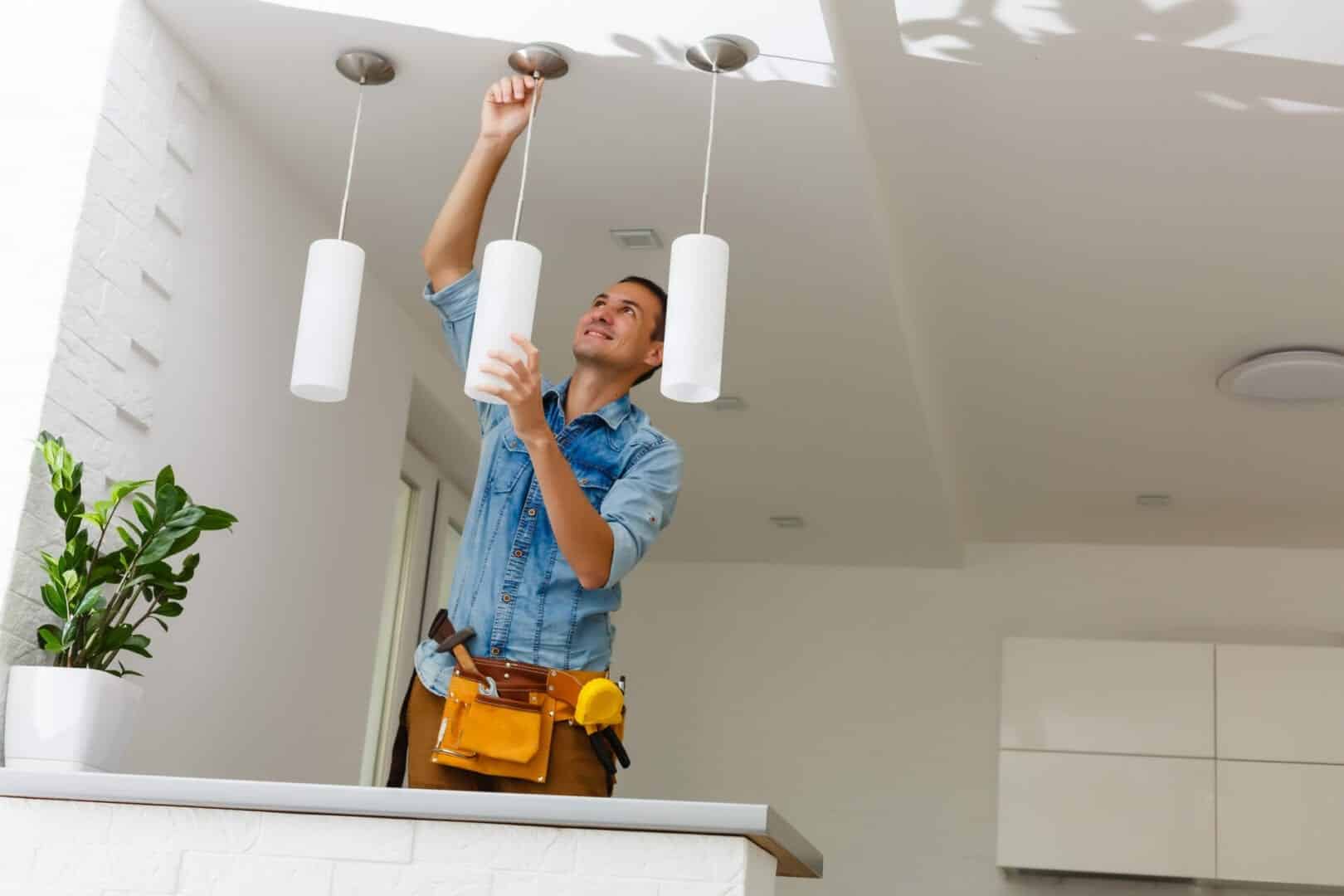
Which handyman qualification is right for you? What certifications and license should you apply for? One option is to earn an electrician diploma and apply for your electrician’s license. This ensures you’re always operating in the safest way possible, and it opens the doorway for you to provide better quality services to a wide variety of clients.
Is an Electricians Program Right for You?
If you value hard work, quality customer service and community, becoming a handyman could be a highly rewarding career path. Earning your electrician’s license adds an additional qualification to your handyman skill set, making you even more valuable to your clients. Whether you choose to serve small businesses or local homeowners, there are plenty of opportunities to grow and improve both personally and professionally by earning an electrician’s diploma at a trade school.
Do Electricians Need a License in Florida?
To legally perform any type of electrical installation, maintenance, or repair, you’ll need to hold a valid Florida electrician’s license. This is done by earning the right qualification first, which you can do through an accredited trade school.
Florida only permits a handyman to perform minor repairs without any formal education or a license. So, even if you know how to do more advanced jobs, you can’t do them legally. You also will not be able to secure the proper liability insurance, which every good handyman needs to protect themselves and their clients in the event of a work-related injury.
Earning your electrician’s diploma allows you to get a license and start doing a wider variety of jobs. You’ll also have the qualifications necessary to work as a contractor for a company or even start your own repair business.
What Is Taught in an Electrician Diploma Program?
Electrician training programs cover everything you need to know about electrical systems, installation processes and repair techniques. You’ll start by learning the fundamentals of electricity, including electrical principles and general skills. Equipped with the best technical knowledge and skill set, you’ll be prepared to perform work in a variety of settings.
An electrician’s diploma offers you the qualifications to work on residential, commercial, and industrial properties. The opportunity to serve as an electrician’s apprentice and gain the experience required for your license puts you one step closer toward working independently or operating your own company.
Subjects Taught at Electrician Vocational School Program
A successful career as a handyman starts by learning the fundamental principles of home, commercial and industrial electrical systems. You would be surprised how many home repairs require a formal knowledge of electricity and safety procedures. Whether you’re replacing an outlet, changing a light fixture, or repairing a broken air conditioner, you must know how electricity works and influences every step of your job.
The first thing you’ll learn in your trade school program will be electrical basics. Lessons will cover basic electrical theory as well as wiring practices. You’ll learn how to choose the right type of tools for a job, different the right equipment and how to perform electrical troubleshooting analyses.
Once you can confidently and safely handle basic wiring and circuitry, you will move on to electrical services and panels. Installation, maintenance, and industry professionals will teach common repairs. You will get hands-on experience through classroom exercises, working with real equipment and panels.
You’ll also learn about electrical grounding, a principle of electricity that channels excess energy into the ground, preventing death or fire. Grounding is fundamental to working on panels or installing wiring; it’s a form of backup that offers built-in protection in the event of a power surge or faulty wiring problem. Installing electrical grounding saves lives, and it’s an essential part of operating as a skilled and trustworthy handyman.
How Long Does It Take to Become an Electrician in Florida?
An electrician diploma program can take as little as 9 months to complete, attending full-time. After graduation, you will apply for one of four electrician’s licenses.
Florida offers four kinds of electrician’s licenses. The first two are the Certified Electrician (CE) license and Registered Electrician (RE) license. Certified and registered electricians have the same credentials, but a certified electrician can work as a handyman anywhere in Florida while a registered electrician can only work in the county they’re licensed to work in. Your personal interests and career goals will influence the type of license you apply for.
To gain further qualification, you can train to become a Certified Electrical Specialty Contractor (ES) or a Registered Electrical Specialty Contractor (ET). Electrical specialty contractor licenses work the same way as certified and registered electricians. They either have clearance to operate anywhere in the state of Florida or they can only work in the counties issued on their licenses.
Final Thoughts
All of this can seem tricky, but the right trade school can help you create a career road map that makes your dream of becoming an independent handyman a reality. You will start by discussing your goals, choosing the right program, and working with professionals who are here to help you. Along the way, you’ll get personalized assistance and feedback as well as job placement assistance.
Electrician Diploma Program
Ready to gain the qualifications to be a successful handyman in Florida? This Electrical Diploma Program prepares you with technical skills and practical knowledge to perform installation tasks, services, and repairs in the electrical trade. Graduates from this program will be able to fill positions as an electrician helper for services and construction firms in residential, commercial, and industrial businesses associated with the electrical trade industry.
Ready to move from the classroom to a career? Florida Technical College is here to help. Contact us to learn more about completing the electrician diploma program at Florida Technical College.
* These examples are intended to serve only as a general guide of possible employment opportunities. There are many factors that determine the job an individual may obtain and Florida Technical College cannot guarantee its graduate any particular job. Some positions may require license or other certifications. We encourage you to research the requirements for the particular position you desire.



